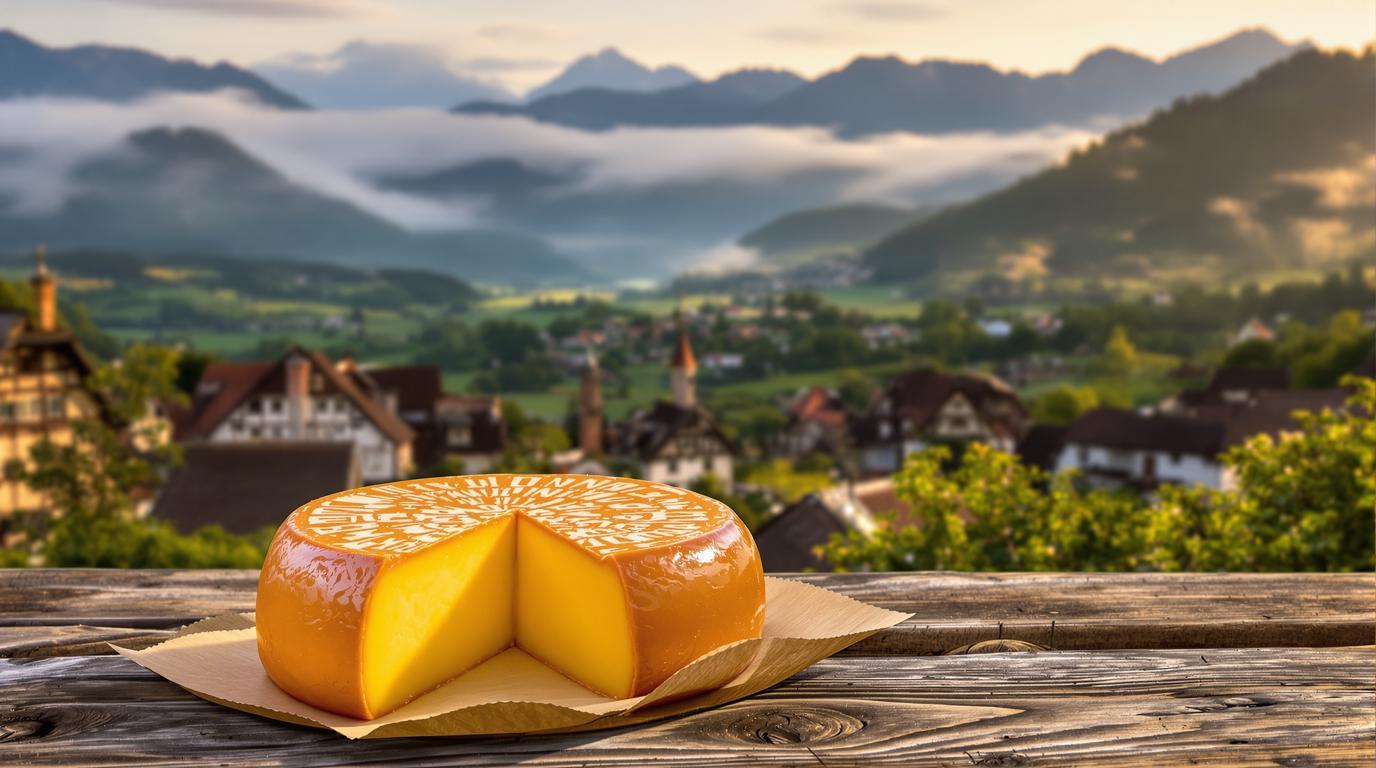Tucked between the rolling Vosges Mountains and vibrant vineyards, Munster isn’t just another pretty Alsatian town. This hidden French gem harbors a centuries-old cheese tradition, enchanting forests, and a resilient spirit that survived devastating WWI destruction. What makes this valley town extraordinary isn’t just its picturesque setting—it’s the perfect blend of French sophistication and German influence that creates an atmosphere unlike anywhere else in Europe.
The cheese that conquered the world
Munster’s most famous export needs no introduction among cheese connoisseurs. The soft, pungent Munster cheese developed by medieval monks still follows traditional aging processes in the town’s cellars. Unlike mass-produced varieties, authentic Munster cheese requires specific Vosges mountain grass fed to local cows, giving it a distinctive character that can’t be replicated elsewhere.
“Our cheese connects us to generations past. When you taste Munster, you’re experiencing centuries of tradition in a single bite,” explains Marie Lefebvre, third-generation cheese producer.
A phoenix risen from wartime ashes
Few visitors realize that nearly 85% of Munster was destroyed during World War I. Walking through today’s charming streets with half-timbered houses and Renaissance facades, it’s hard to imagine the devastation once faced. The meticulous reconstruction preserved the town’s Alsatian soul while incorporating subtle architectural innovations that reward observant travelers.
The Abbey of Saint Gregory stands as testament to this resilience, its weathered stone arches and cloisters whispering tales of destruction and rebirth. For history enthusiasts, morning visits offer the most atmospheric experience with fewer crowds.
Where storks return each spring
Alsace’s iconic white storks find special sanctuary in Munster. The Enclos aux Cigognes conservation area has successfully reintroduced these magnificent birds after near-extinction. Visit between March and August to witness massive nests perched atop chimneys and special platforms throughout town.
These majestic creatures are more than wildlife—they’re living symbols of Alsatian cultural identity. Local legend claims babies aren’t delivered by just any stork, but specifically by Munster’s storks, who possess special knowledge of which families are ready for children.
A hiker’s paradise beyond tourist trails
While nearby Colmar attracts bus tours, Munster rewards adventurous travelers with solitude among the mountains. The network of trails through the Vosges reveals hidden valleys, alpine lakes, and panoramic vistas that rival Switzerland’s—without the crowds or prices.
The Route des Crêtes mountain road offers spectacular driving views, but true magic awaits on foot along the GR5 long-distance path, where ancient forests open to reveal mountain meadows carpeted with wildflowers each summer.
Where two cultures create culinary magic
Munster’s position in once-disputed Alsace created a fascinating culinary hybrid. Traditional French techniques merge with German-influenced ingredients, resulting in dishes like baeckeoffe (slow-cooked meat pie), flammekueche (thin-crust savory tart), and the ultimate comfort food—spaetzle with Munster cheese.
“Our cooking represents our history—sometimes French, sometimes German, but always distinctly Alsatian,” notes Chef Jean Muller of local favorite Winstub S’stewla.
The perfect base for Alsatian adventures
Strategically positioned, Munster serves as an ideal launching point for exploring the region’s treasures. The famous hidden waterfalls and emerald pools of southern France lie within reach, while picture-perfect villages like Eguisheim and Riquewihr await just minutes away.
The town’s relaxed pace provides welcome contrast to Colmar’s tourist hustle. Consider splitting your stay between accommodations for the full Alsatian experience, using Munster for outdoor adventures and eco-friendly exploration of the mountains.
When to experience Munster at its finest
Each season transforms Munster dramatically. Spring brings wildflower explosions across mountain meadows. Summer offers perfect hiking weather with festivals celebrating local cheese. Fall paints the surrounding forests in spectacular amber and crimson. Winter blankets the valley in snow, creating opportunities for cross-country skiing and cozy evenings by firelit restaurants.
For the quintessential experience, visit during late September’s Cheese Festival when producers showcase their finest creations alongside Alsatian wine tastings, traditional music, and local crafts demonstrations that reveal the area’s evolutionary crossroads between French and German cultures.
Munster may lack the international recognition of more famous natural wonders, but therein lies its charm. This unassuming town offers authentic Alsace without pretense—a place where centuries-old traditions remain living practices rather than tourist attractions. Pack comfortable shoes, an appetite for strong cheese, and a camera ready to capture the magic of a town that embodies the very soul of this captivating French-German borderland.
